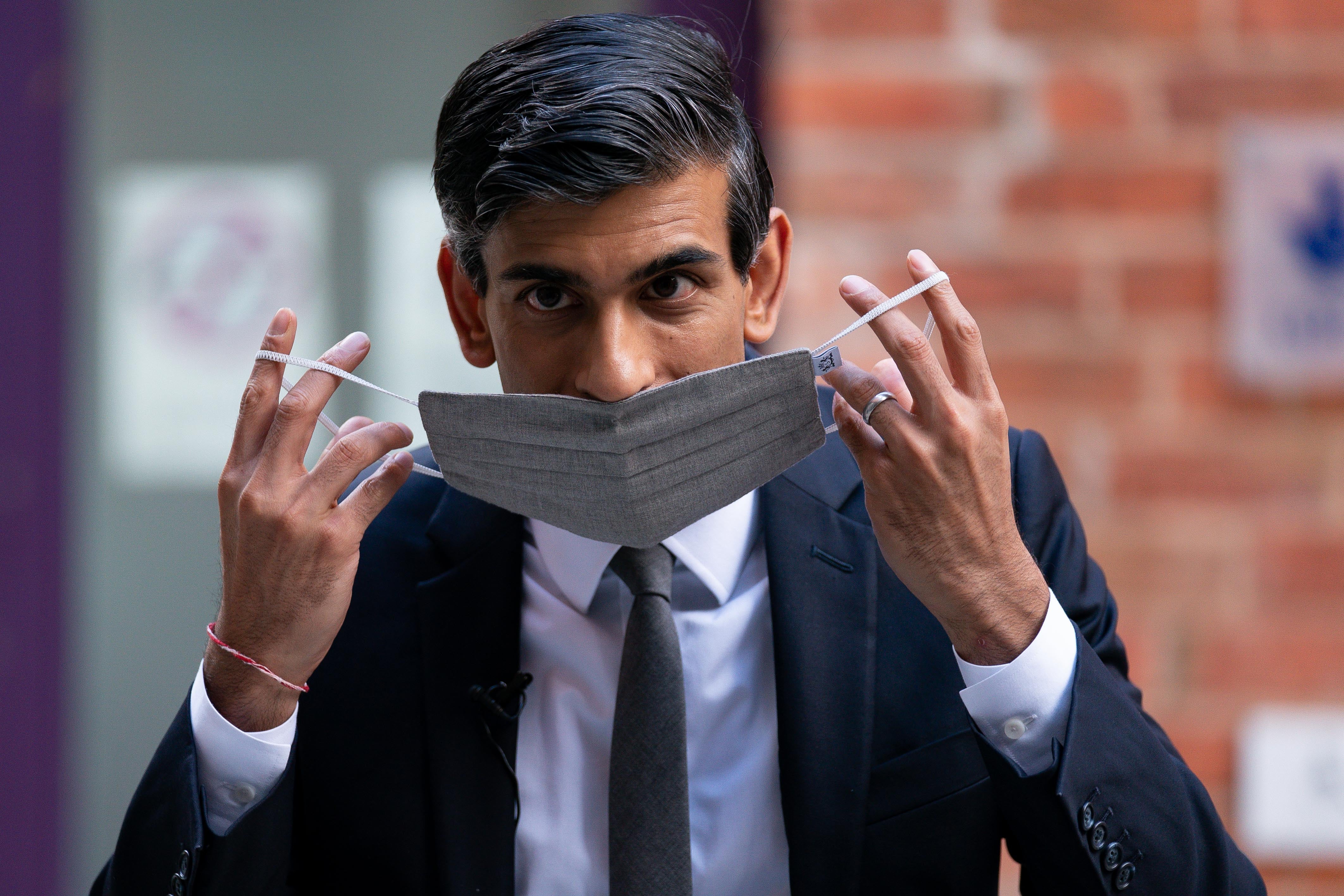Boris Johnson’s gamble over tax rises could cost the Conservatives dearly
A big week for tax and spending decisions is coming up, writes John Rentoul, but will the rich and old pay their fair share?


Boris Johnson’s plan for social care, which was ready the day he became prime minister two years ago, and which was going to be announced before the summer recess, is now going to be unveiled next week. Only ministers still haven’t agreed on what is going to be in it.
Sources say that the discussion is still “live”. The cap on the total costs anyone will have to pay towards their care could be between £60,000 and £80,000, and a rise in national insurance contributions to pay for it could be 1p in the pound, or one-and-a-quarter pence, but probably not two. Some sources say Sajid Javid was pushing for a rise of 2p in the pound, but sources closer to the health secretary say he wasn’t.
What seems strange is that all the leaks seem to agree that the tax rise should take the form of higher national insurance payments, which are not paid on dividends, interest or rent – or by pensioners. This means, as Labour’s Bridget Phillipson pointed out, that the cost will fall disproportionately on “low earners, young people and business”.
It is almost as if Johnson, Javid and Rishi Sunak are not listening to me, or, more significantly, to Jeremy Hunt, the former health secretary, who has written in favour of his preferred option of a surcharge on income tax, which he calls a “health and care premium”. That would be a fairer way of funding it.
But what is the “it” that the new tax is funding? Instead of just going to pay for the still-unfinished social care plan, some of the money raised seems to be being diverted into clearing the NHS backlog from the pandemic. In fact, this is all a bit of sales patter for the tax rise: paying more for social care is reasonably popular, but it is abstract and a lot of people think it doesn’t apply to them; the NHS on the other hand is really popular, and voters are more likely to say they would be happy to pay more for it.
You might think that using a tax rise to pay for two huge spending items is a way of making sure that neither social care nor the NHS gets enough, but that may not be true in the short term. The Financial Times reports that the public finances are about £25bn better off than the Treasury expected this autumn, so Sunak can afford to meet most of the immediate post-pandemic spending demands. He has to keep the lid on public spending, which is why he is likely to redefine the triple lock on state pension rises, to iron out the artificial effect of average earnings figures bouncing back after the pandemic. But he also knows that he has to increase revenues in the longer term, so he needs to use the post-pandemic crisis in the NHS to maximise public consent for higher taxes.
Some Conservative MPs are not happy, and say there will be an electoral price to pay for breaking manifesto promises not to raise rates of income tax, national insurance or VAT. But while no one likes paying more tax, public opinion accepts the argument that the pandemic was an exceptional event, and is willing to bear the burden, especially if it has NHS branding on it, and if it is seen to be fair.
That is where we come to the crunch. “National insurance” sounds cuddlier than “income tax”, but if people realise that it means letting rich pensioners off lightly, then the government could hit turbulence. That is why Labour was quick off the mark to criticise. Not that Phillipson was explicit about whether Labour thought higher taxes were needed, and if so where they would come from, but if the unfairness of this particular tax rise can be exposed, Labour would be doing its job as a serious opposition. (It was interesting, too, that Phillipson mentioned “business” as being hit by the “manifesto-breaking tax rise”: she means employers, who also pay national insurance contributions, but who many Labour supporters will see as fair game.)
I predicted before the summer recess that Sunak was allowing speculation about a rise in national insurance contributions to run so that he could surprise everyone with a new tax that was better related to people’s ability to pay. But it seems as if he, Johnson and Javid really are going to go ahead with a tax rise skewed towards a heavier burden on the young and the lower paid.
Given how much the young and those on lower incomes have suffered over the past 18 months, this seems worse than cynical politics. We know that older people are more likely to vote Conservative but unless the party can persuade younger people that it wants to share the costs of health and social care spending fairly, it is going to suffer.
This article was amended, having previously said national insurance contributions are not charged on earnings above £50,000 a year: in fact earnings above this “upper earnings limit” are charged at 2 per cent, and any increase would presumably apply above this level too.
Join our commenting forum
Join thought-provoking conversations, follow other Independent readers and see their replies
Comments
Bookmark popover
Removed from bookmarks